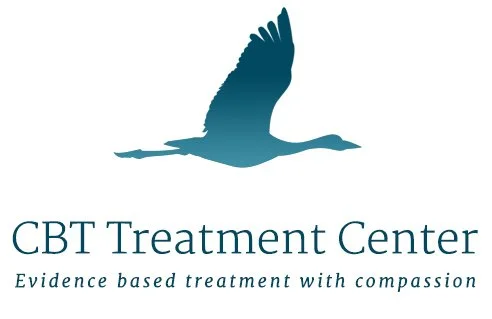
Therapy For Panic Attacks
Are You Frequently Derailed By Panic Attacks?
Do you or your child suffer from debilitating panic attacks?
When one strikes, are you overwhelmed by intense fear and physical symptoms that paralyze and overwhelm you?
Does the uncertainty of not knowing where or when the next one may strike trigger further anxiety or prevent you from living life to the fullest?
When a panic attack occurs, it can stop you dead in your tracks, unable to escape the physical sensations and emotional distress that leave you helplessly trapped in your body. As your heart beats out of your chest, you might break out in a sweat, feel tightening or pain in your chest, or experience tingling in your hands and feet.
In addition to potential dizziness, nausea, vomiting, and hot and cold flashes, a sense of dread and extreme anxiety may wash over you that makes you feel like your life is in danger or that you could die. Convinced you had a cardiac event, you might end up in the E.R. Afterward, it might take hours to fully recover. You might feel exhausted and unfocused, struggling to get back on track.
Panic Attacks May Seem Mysterious And Unpredictable
If your panic attacks come out of nowhere and without warning, you may have become reluctant to make commitments away from home for fear of finding yourself immobilized with panic somewhere unfamiliar. Or perhaps you associate panic attacks with certain places or situations you now intentionally avoid to prevent another episode.
If you or your child lives in fear of when the next panic attack will strike, therapy can help. By utilizing evidence-based treatments for anxiety, counseling can reduce the frequency and intensity of panic attacks, allowing you to break free of their hold.
Panic Is Part Of The Body’s Survival Mechanism
Panic symptoms are the body’s natural reaction to danger. When the fight-or-flight response is activated—triggering increases in heart rate, respiration, and perspiration—our body readies itself to meet a threat or escape disaster. This built-in alarm system originates in the reptilian part of the brain and is designed to keep us alive and help us survive.
Even though we are no longer cavemen and don’t need to be on high alert to escape constant danger, our brains sometimes flip the switch on this ancient warning system, triggering the same panic response to seemingly non-threatening situations. These false alarms can be exacerbated when we have an overactive amygdala and underactive prefrontal cortex, leading to severe anxiety and panic attacks that leave us paralyzed with fear. [1]
Managing Panic Attacks On Your Own Can Be Challenging
Trying to break the cycle of fear and anxiety by yourself is hard to do. Once you begin to experience the fear of having another panic attack, or when the panic attacks keep coming in rapid succession, it makes keeping up a normal routine impossible.
Soon, you might be limiting where you go and how you get there for fear of what may happen when you’re away from home. By trying to avoid potential triggers, you or your child might be depriving yourselves of enjoyable experiences and living a smaller, more isolated life.
Fortunately, therapy offers effective treatment options that can help you understand what is happening physically and psychologically when panic attacks happen. With this knowledge, you can learn effective ways to manage anxiety so that panic attacks no longer keep you trapped.
Therapy For Panic Attacks Can Help You Take Control And Find Peace
What To Expect In Sessions
Counseling for panic attacks focuses on managing anxiety, reducing the feelings of panic, and learning how to manage the waves of anxiety when they surface., Therapy will help you better understand the functions of the brain and nervous system and why anxiety exists in the first place. With this knowledge, you can better manage its symptoms.
Although avoidance and safety behaviors—like carrying Xanax with you everywhere you go—may seem like necessary steps to keep panic at bay, more often, they perpetuate anxiety. In therapy, we will examine the habits and behaviors that may unknowingly make anxiety worse and help wean you from them.
We Utilize Effective Treatments For Panic Attacks
The therapists at CBT Treatment Center specialize in evidence-based methods that can help reduce panic attack symptoms, including Cognitive Behavioral Therapy (CBT), Acceptance and Commitment Therapy (ACT), and some elements of Exposure and Response Prevention (ERP). CBT explores the thought patterns that contribute to anxiety, aiming to transform these negative beliefs. You will gain a keener awareness of your inner dialogue by tracking your thoughts and seeing how they may correlate to panic symptoms.
By aligning personal values to actions and learning helpful ways to tolerate and accept discomfort, ACT can provide valuable support in reducing panic attacks. When you can acknowledge anxiety for what it is, you can alter your relationship with it.
Instead of fearing the uncertainty of when the next panic attack will hit, you can release the struggle, which fosters a greater sense of control. Therapy will also incorporate interoceptive exposures, things you can do that mimic the symptoms of panic so you can learn how to manage them in a safe, controlled environment.
Although it can feel like this fear will never go away, you don't have to be held hostage by panic attacks anymore. As John Kabat-Zinn, the founder of Mindfulness-Based Stress Reduction (MBSR) writes, “You can't stop the waves, but you can learn to surf.” [2] We have the expertise to help you get back to the life you want.
If you or your child has been living with a panic disorder, you might feel like you’re always waiting for the next shoe to drop. Planning around the possibility of having a panic attack means every day is dictated by something that feels out of your control. But that’s no way to live.
In therapy, we examine your history of panic attacks, looking closely at what's happened in past episodes from start to finish. Understanding the symptom cluster that occurs during a typical panic attack will help us determine its severity and frequency. In treatment, you will learn how to retrain your brain to better manage anxiety symptoms when they come. In treatment, you will learn how to retrain your brain to manage anxiety symptoms more effectively when they come. When you no longer fear the panic and can accept these uncomfortable feelings and sensations as temporary and non-life-threatening, they will diminish in intensity more readily.
But You May Wonder Whether Therapy For Panic Attacks Is Right For You…
I worry that talking about my anxiety in therapy will trigger more frequent panic attacks.
Understandably, you may want to avoid talking about the anxiety that arises wondering when the next panic attack may hit. After all, it can be challenging to face your fears and take a closer look at something that causes so much pain and suffering.
However, remember that the goal of panic attack therapy is to confront the burden you carry with support from a mental health professional. As a specialist in panic attack treatment, your therapist will be on your team and will remain by your side until you reach the finish line.
Should I consider taking medication for panic attacks in addition to therapy?
While we recommend that you consult with your physician about the benefits of medication for panic attacks, the beauty of CBT is that many people can thrive without the need for medicine. CBT is the gold standard of panic attack disorder treatment and can help reduce symptoms with therapy alone. Cognitive-based approaches to therapy help rewire your brain to better manage and tolerate anxiety, allowing you to live life to the fullest.
What if my anxiety attacks come out of nowhere and I don’t understand what triggers them—will treatment be helpful?
Fortunately, we don't necessarily need to know what causes your panic attacks to reduce their frequency with treatment. As long as you’re willing to consider therapy and are open to evidence-based interventions like Cognitive Behavioral Therapy (CBT) and Acceptance and Commitment Therapy (ACT), we can help get your anxiety and panic attacks under control.

Panic Attacks Don’t Have To Keep You Sidelined Anymore
Help is available that allows you to live more freely. To schedule a free consultation to learn more about therapy for panic attacks, please contact us.
[1] https://neurolaunch.com/what-happens-in-the-brain-during-a-panic-attack/ [
2]https://www.goodreads.com/author/quotes/8750.Jon_Kabat_Zinn



